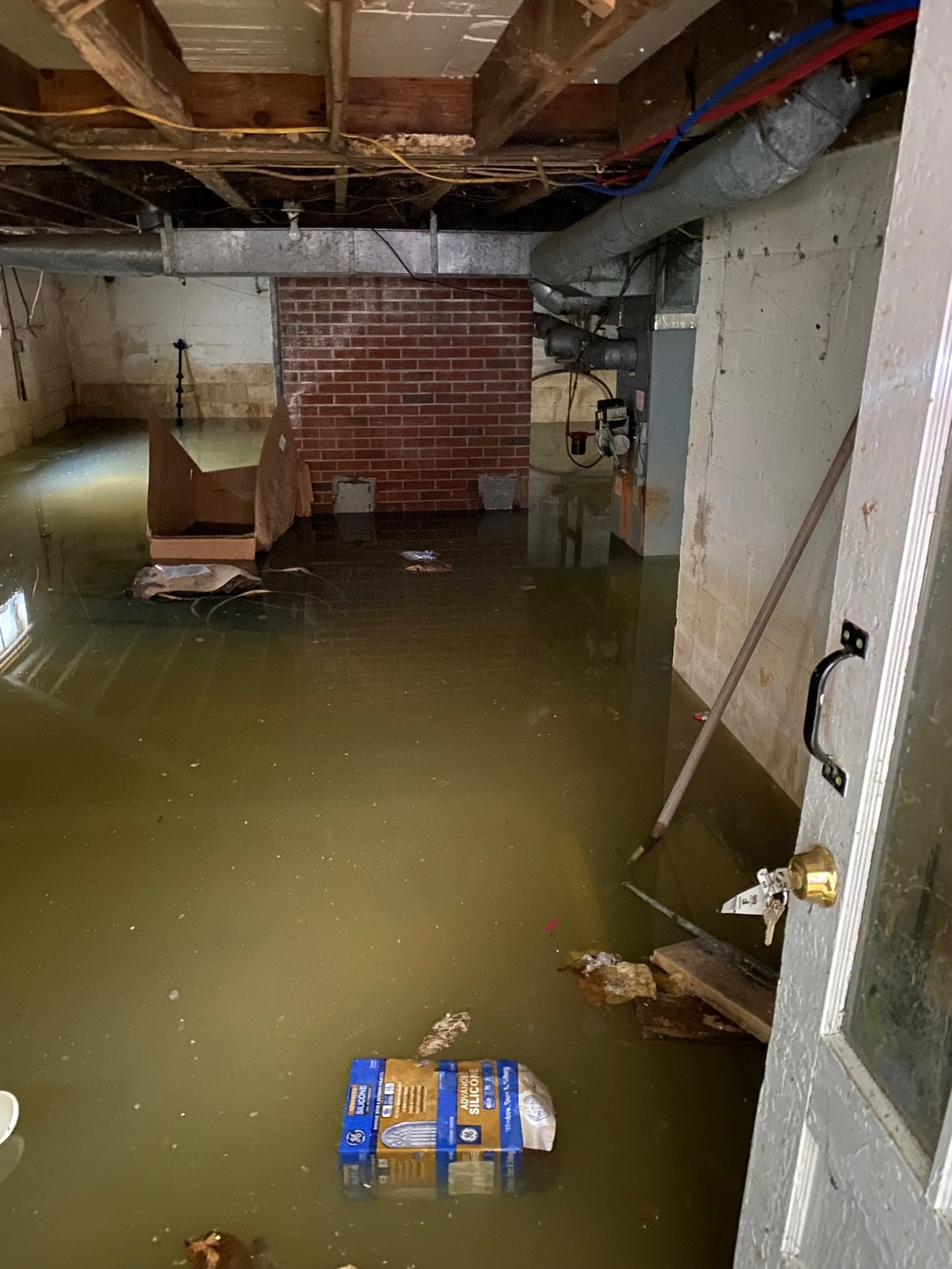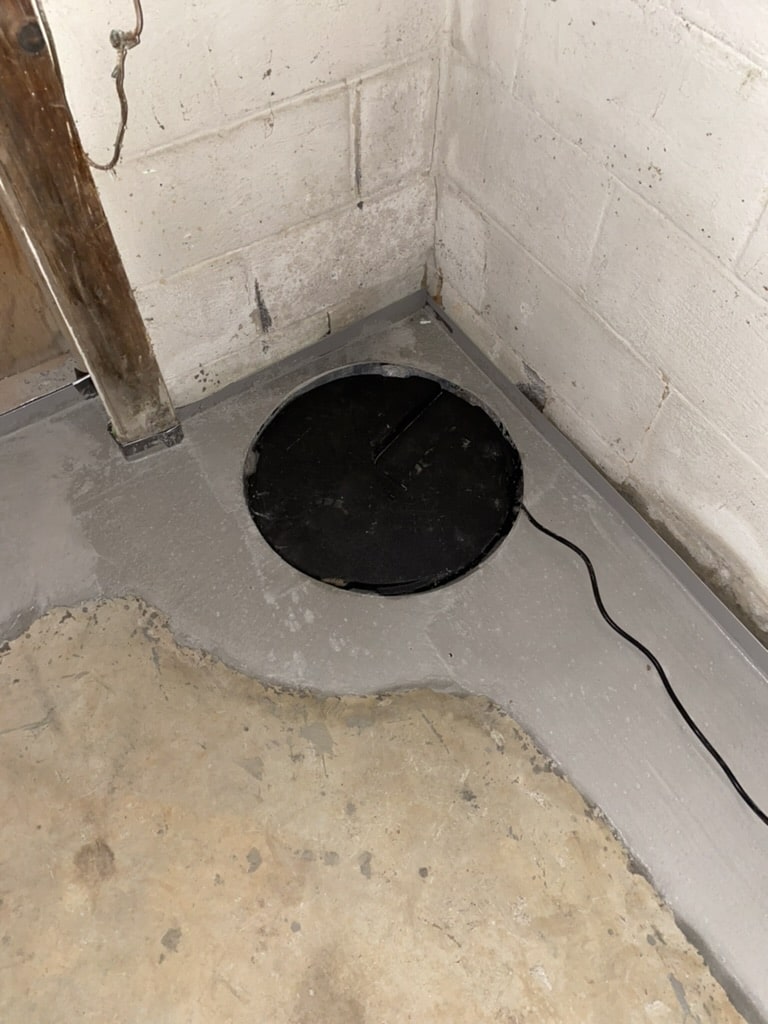You’re about to list your home on the market, but have you thought about the state of your basement? Many homeowners overlook the importance of waterproofing their basements, but it’s a crucial step that could significantly affect your home’s value. If your basement isn’t waterproofed, potential buyers might be put off by the risk of water damage and mold. It’s not just about aesthetic appeal – it’s about ensuring your property is in top condition. So, what are the benefits of basement waterproofing and how can it help you get a better return on your investment?
Key Takeaways
- Waterproofing your basement enhances the market value of your home significantly.
- A non-waterproofed basement can lead to mold growth and structural damage, decreasing home value.
- Waterproofing helps create additional usable space, increasing property appeal for potential buyers.
- The long-term costs of repairing a non-waterproofed basement may outweigh the initial expenses of waterproofing.
- Waterproofing alleviates concerns about water damage for appraisers, potentially leading to a higher appraisal value.
Understanding Basement Waterproofing

Basement waterproofing is the process of preventing water from penetrating your home’s basement. It’s an essential step before listing your home for sale as it can dramatically influence the value and appeal of your property.
Waterproofing methods vary, but all aim to tackle basement moisture. You might opt for an interior waterproofing method, which involves applying sealants and coatings to prevent condensation.
It’s the most common method, but it’s often not enough on its own. You’ll need to consider exterior waterproofing too, which involves excavating around your home to install drainage systems. This method is more intensive but can effectively stop water from making its way into your basement.
Alternatively, you may consider drainage methods. These work by rerouting water away from your basement, preventing it from causing any damage.
It’s particularly effective if your home is prone to heavy rainfall or flooding.
The Dangers of a Non-Waterproofed Basement
While understanding the methods of basement waterproofing is important, it’s equally vital to comprehend the risks associated with a non-waterproofed basement. Moisture seeping through your basement can lead to mold growth, causing health risks to your family. Moreover, it can cause structural damage, undermining the integrity of your home.
| Issue | Consequences | Prevention |
|---|---|---|
| Mold Growth | Health problems like allergies and respiratory infections; unsightly green or black patches on walls. | Ensure proper humidity control and eliminate water leaks. |
| Structural Damage | Cracked walls, uneven floors, or a sagging house; can be costly to repair. | Regular inspection and maintenance; waterproofing. |
| Decreased Home Value | Potential buyers might be put off by the problems; decrease in home’s market value. | Proactive measures to keep the basement dry and well maintained. |
| Unwanted Pests | Damp environments attract pests like insects and rodents; may cause further damage and health risks. | Keep the basement dry; Pest control measures. |
Don’t underestimate these dangers. You might be saving on upfront waterproofing costs, but in the long run, you’re potentially looking at hefty repair bills and compromised health. Waterproofing your basement before listing your home is not just a smart move, it’s a preventive measure for these risks.
How Waterproofing Enhances Home Value
Taking the time to waterproof your basement can significantly enhance your home’s market value. It’s an investment that offers a substantial return. By ensuring that your basement is waterproof, you’re not only protecting your home from potential damage but also boosting its appeal to potential buyers.
Waterproofing your basement demonstrates a high level of maintenance and care for your property. During a home appraisal, this aspect may significantly influence the overall evaluation. Appraisers often look for signs of water damage or potential for it, and a waterproofed basement alleviates these concerns, potentially increasing your home’s appraised value.
Moreover, a waterproofed basement opens up possibilities for additional living or storage space, adding square footage to your home’s usable area. This additional space is a huge selling point and can attract potential buyers willing to pay a premium for it.
In essence, waterproofing your basement isn’t just about preventing damage—it’s also about maximizing your property’s potential and ensuring you get the best possible return on your investment.
Essential Steps in Basement Waterproofing
Before you embark on the journey of waterproofing your basement, it’s crucial to understand the essential steps involved. First, inspect your basement for any existing water issues. Look for signs of moisture like wet spots, mold, or a musty smell. It’s important to identify and fix these issues before moving on to the next steps.
Second, consider drainage solutions. These can help divert water away from your home, preventing it from entering your basement. You may need to install a sump pump or French drain, depending on your situation.
Lastly, install moisture barriers. These are crucial in preventing water from seeping through your walls and floor. They can be applied internally or externally, depending on your needs.
Here’s a quick summary:
| Step | Description | Solution |
|---|---|---|
| Inspect | Check for existing water issues. | Repair any found issues. |
| Drainage | Consider solutions to keep water away. | Install a sump pump or French drain. |
| Barriers | Prevent water from seeping in. | Apply moisture barriers internally or externally. |
Choosing the Right Waterproofing Contractor
Now that you’ve identified the necessary steps in basement waterproofing, the next move is to find a reliable professional to carry out the job. Your home is an investment, and you don’t want to entrust it to just anyone. You need a waterproofing contractor with the right qualifications and a deep understanding of the latest waterproofing technologies.
Start by checking contractor qualifications. Look for a professional with a proven track record in basement waterproofing. They should have a valid license and adequate insurance to protect you from any liabilities.
Also, check for certifications from reputable bodies in the construction industry. These add credibility and demonstrate the contractor’s commitment to maintaining professional standards.
Next, consider their understanding of waterproofing technologies. The contractor should be familiar with different waterproofing methods and materials.
They should be able to advise on the best technology for your basement, considering factors like the area’s water table, soil type, and your home’s construction.
Frequently Asked Questions
What Is the Average Cost of Basement Waterproofing?
You’re likely wondering about the average costs of basement waterproofing.
It’s not a simple answer as it depends on several factors, including the waterproofing techniques used. Generally, it can range from $500 to over $10,000.
The price varies based on the extent of the issue, the size of your basement, and the methods used.
It’s best to get multiple quotes to understand what you’re looking at in terms of cost.
How Long Does a Basement Waterproofing Project Usually Take?
It’s crucial to understand that the duration of a basement waterproofing project can vary.
Typically, it takes about 1-3 days, depending on the severity of the basement humidity and water damage.
But remember, it’s not just about the time—it’s about getting it done right.
You wouldn’t want to rush this process.
It’s better to ensure a thorough job to prevent potential damage in the future.
Be patient and let the experts do their work.
Will Waterproofing My Basement Disrupt My Daily Home Activities?
Yes, waterproofing your basement may disrupt your daily home activities.

It’s a process that involves heavy machinery and can be quite noisy. You’ll need to clear out your basement completely, which could interfere with your storage arrangements.
However, it’s a temporary disruption and the benefits of having a waterproof basement outweigh the temporary inconveniences.
What Signs Indicate That My Basement Needs Waterproofing?
You’ll know your basement needs waterproofing if you spot certain signs.
If you’re noticing persistent basement leaks or dampness, that’s a big red flag.
Moisture issues can manifest in various ways including mildew, mold, or a musty odor.
Peeling paint, rust on metal items, and efflorescence, a white chalky substance, on walls are other common signs.
If you’re seeing these, it’s time to consider waterproofing your basement.
Is It Possible to Waterproof the Basement by Myself or Do I Need Professional Help?
Yes, it’s possible to waterproof your basement using DIY techniques.
However, if you’re not confident in your abilities or if the job is complex, it’s advisable to seek professional assistance.
Pros have the right tools and expertise to ensure the job’s done right.
Remember, poorly done waterproofing can lead to more damage.
It’s better to invest in a pro now than face costly repairs later.
So, don’t put your house on the market before waterproofing your basement. Not only will it boost your home’s value, but it also makes it more appealing to potential buyers. Remember, a dry, usable basement is a big selling point. Take the time to choose a reputable waterproofing contractor to get the job done right. By investing in basement waterproofing, you’re securing a solid return on your investment and setting your home apart.

Seal-tite Basement Waterproofing Co. is a full service basement environment contractor. We carry an A+ Better Business Bureau rating. We repaired over 40,000 homes and structures in Virginia, West Virginia, Tennessee, and North Carolina. We are fully insured and licensed. We have worked in all types of locations, including residential and commercial locations, government agencies, colleges, hospitals, churches, and condo associations.
Seal-tite® offers a lifetime transferable warranty. We carry a Class A Contractor’s License and we are fully insured. Our satisfied customers range from government agencies to businesses, hospitals, colleges, churches, and thousands of homeowners. Your home is probably the single largest investment you will make in your lifetime. Don’t wait, call Seal-tite® to help make your home dry, safe and livable.

